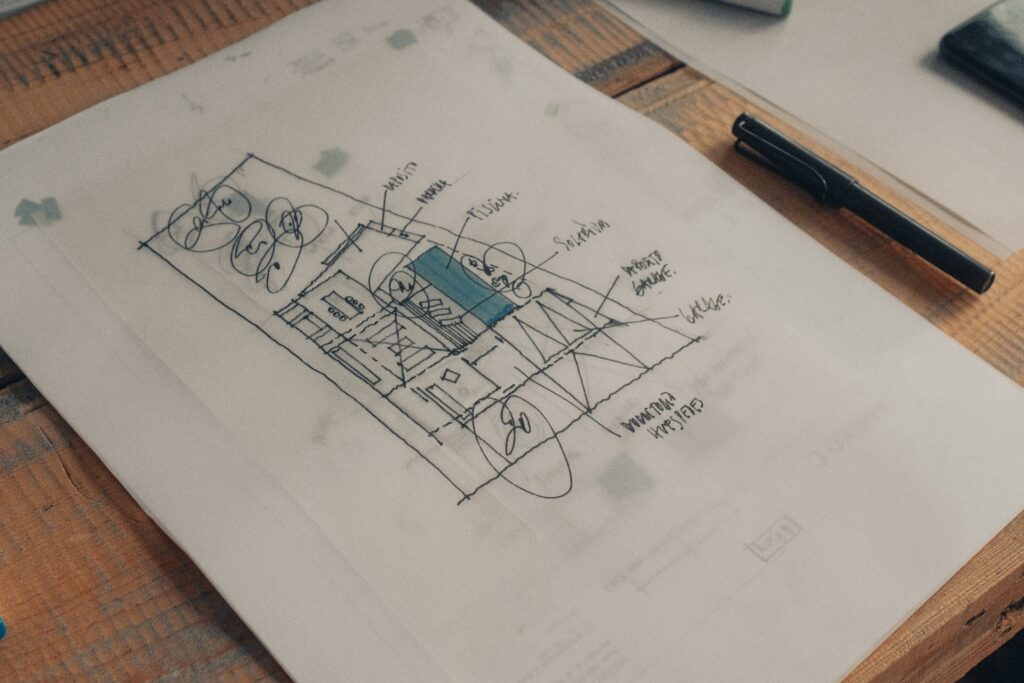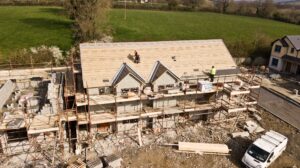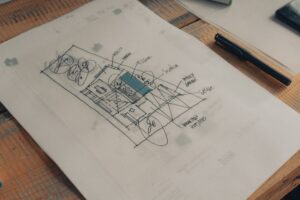Navigating Hydrology Engineering in Construction: The Crucial Role of Permit Expediting
In the construction industry, hydrology is one of many specializations that engineers can focus on. Hydrology involves the study of the movement and distribution of water beneath the ground and on the earth’s surface. The natural flow of water is capable of shaping landscapes and determining how buildings are constructed.
However, it also poses numerous challenges that must be dealt with by hydrology engineers. During the construction process, understanding how hydrology works is necessary for risk management and proper site planning.
To ensure the project goes forward without unnecessary delays or roadblocks, it’s also crucial that hydrology engineers and all other professionals working on the project collaborate to obtain the right permits. By expediting this process with the help of a professional, all building permit applications can be approved promptly. This in-depth guide explores hydrology engineering in construction and the role it plays in permit expediting.

Understanding Hydrology Engineering
Hydrology engineering centers around understanding the movement of water and its impact on construction projects. This is one of the many disciplines that prospective civil engineers can focus on before they enter the workforce.
Hydrology engineers are responsible for assessing various water-related risks in construction. For example, they can look at the building plans and determine if water will be diverted away from the property. The land may need to undergo additional alterations to ensure proper drainage.
Hydrology engineers take on many responsibilities during the construction process. For example, they’ll analyze data like flooding frequency, water quality, and rainfall intensity. They’ll also need to use concepts like water balance and the hydrologic cycle daily. To make the right decisions during a project, hydrology engineers use advanced modeling tools.
Engineers who focus on hydrology can be involved in many different applications, which include everything from constructing residential homes to designing dams. These engineers can also work in sewage treatment and disbursement. The many roles that hydrology engineers are involved in extend to the following:
- Coast protection
- Wastewater treatment
- Flood prevention
- Rural water usage monitoring
- River management
- Water supply management
- Urban water circulation
- Flood damage management
- Flood mapping
- Sediment transporting
The most common application that hydrology engineers focus on with construction is understanding how water impacts a building from various sources. General contractors and architects must know if the building they’re making will be situated on a water-impermeable or water-saturated foundation. If the ground consists of too much water, the durability of the building could be compromised. If water leaks occur during the construction process, delays will invariably follow.
Educational Path and Career Outlook
Aspiring hydrology engineers must take the correct educational path to ensure they meet the requirements to start this career. Most hydrology engineering positions require applicants to have a Bachelor of Science in Engineering or scientific fields. If you’re attending a school that doesn’t offer this type of degree, you can also gain the skills needed to become a hydrology engineer by studying the following engineering fields:
- Agricultural
- Civil
- Environmental
- Biological
If you’d like to further improve your skills and bolster your resume, consider obtaining a Master of Science degree. Some hydrology engineer positions require this level of education. If you’re unable to obtain a degree in hydrology, make sure you enter a program that involves a similar branch of engineering.

Before you start a career as a hydrology engineer, you must first obtain a professional engineering license. To get this license, you’ll need to pass an exam that includes multiple written tests on subjects that involve everything from seismic shifts to surveying. The types of skills that prospective engineers should have include the following:
- Communication skills – Engineers work with many other professionals. You need to know how to discuss design documents and support your decisions.
- Analytical skills – Hydrologists collect a considerable amount of data during their work, which extends to everything from reservoir storage limits to water demands. You’ll need to analyze this info to make informed engineering decisions during a project.
- Mathematical skills – You’ll be tasked with performing numerous calculations, which means that you should have comprehensive knowledge of algebra.
- Critical thinking skills – Being able to display critical thinking ensures that you can identify and plan for water-based risks during construction projects. You’ll need to use these skills to find efficient solutions for droughts, floods, and water management.
- Physical stamina – While some engineers work primarily in office environments, it’s common for hydrology ones to perform their duties on-site, which is why physical stamina is crucial.
Keep in mind that specific states require work experience before they’re able to provide a PE license. These requirements usually involve working as an apprentice with a licensed engineer. Make sure you contact the engineering and licensing board in your state to identify the specific requirements.
As a hydrologist, you can earn an average of $84,000 per year, according to BLS. However, hydrologists who work in construction may earn higher salaries that approach $100,000. Gaining more experience as a hydrologist should provide you with more opportunities to advance your career.
The highest salaries for hydrologists are available to those who work in technical or scientific consulting. While the industry isn’t expected to grow considerably in the near future, it has risen in popularity over the past five years. You can expect hundreds of openings to be available to hydrology engineers every year. Construction is one of the areas that’s fueling the need for hydrology engineers. Some of the other factors that may contribute to higher demand in the future include less water availability and global climate challenges.
Importance of Permit Expediting
Permit expediting can be highly advantageous for any construction project. Unless you’re painting a room or installing new carpeting, you’ll likely need to obtain multiple types of building permits before you can start working on your project. To get a permit, you must first submit an application to your city’s building department. Their goal is to make sure that your plans and documentation meet local building codes and zoning regulations.
The main drawback to obtaining building permits is that the process can take a long time. Depending on the size of the building, the permit approval process can take months. If there are any delays during this process, you’ll likely need to push your project timeline to an indeterminate point in the future. Delays only serve to waste your valuable resources.
To avoid delays and other hurdles, it’s highly recommended that you obtain permit expediting. Permit expediting is crucial for all construction projects because of how it shortens approval timelines and avoids delays. However, it’s even more useful for complex projects that involve hydrology engineering and strict planning.
A permit expediter can help you identify issues with your existing building plans and hydrology-related documentation before you submit your application. They will then help you respond to any requests the city makes before providing you with the permit.

Streamlining Construction Processes
Expediting the permits you need for hydrology-related construction projects can help you streamline these processes. When you expedite a building permit, you’ll likely be able to reduce the approval time by weeks. You’ll also avoid the obstacles that often arise when dealing with the local building and planning department. For example, a single error in your documentation can lead to weeks of delays. Permit expediting allows you to mitigate these issues early in the process.
By reducing the number of delays that occur, you’ll also be able to keep costs under control. If you’ve been involved in hydrology-related construction projects before now, you likely understand how expensive a single delay can be when you’re trying to adhere to deadlines. From residential homes and large estates to retail projects, Crest Real Estate has helped streamline thousands of projects that involved more than $10 billion in construction.
Collaboration and Communication
Everyone who’s involved in a complex construction project that requires a hydrology engineer needs to work together to avoid problems. Collaboration between hydrology engineers, permit expediters, contractors, and architects ensures that delays are kept to a minimum and that every aspect of the building meets local codes.
If the hydrology engineer isn’t on the same page as the general contractor and permit expediter, the building plans may not be up to code. Make sure all professionals involved with the project communicate regularly with one another. Effective communication strategies ensure smooth permit processing.
Best Practices for Permit Expediting
The best way to expedite permits in hydrology engineering projects is by hiring a professional permit expediter to ensure the entire process is handled with care. You must gather all the necessary documents to submit with the application, which include the following:
- Hydrology-related documents
- Engineering and architectural designs
- Maps
- Photographs
- Energy calculations
- Construction plans
- Design load calculations
It’s also highly recommended that you implement Business Information Modeling (BIM) software to optimize your project and maintain effective communication with everyone involved. You should stay up-to-date with the latest regulatory requirements and procedures to avoid making any costly mistakes.

Conclusion
Hydrology engineers play a critical role in construction projects. They check water quality, identify local water resources, and make sure the building is being constructed on a solid foundation. To ensure a timely and successful project completion, it’s important that you perform permit expediting. Otherwise, you may be unable to avoid lengthy delays. The success of your project also depends on efficient collaboration and communication among hydrology engineers, general contractors, the design team, and the permit expediter.

Jason Somers, President & Founder of Crest Real Estate
With over 15 years of professional experience in the Los Angeles luxury real estate market, Jason Somers has the background, judgement and track record to provide an unparalleled level of real estate services. His widespread knowledge helps clients identify and acquire income producing properties and value-ad development opportunities.
Learn more about Jason Somers or contact us.



